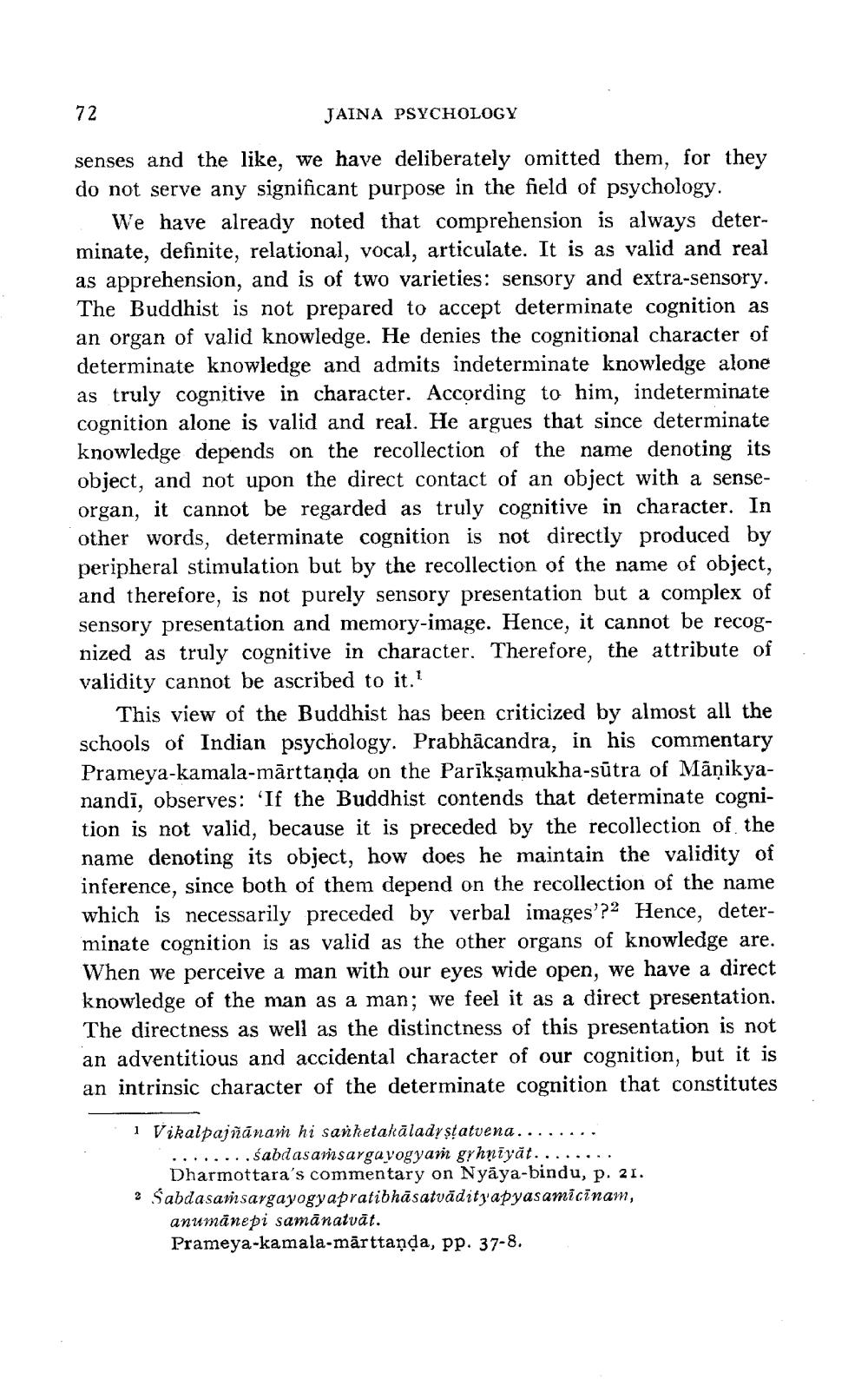________________
72
JAINA PSYCHOLOGY
senses and the like, we have deliberately omitted them, for they do not serve any significant purpose in the field of psychology.
We have already noted that comprehension is always determinate, definite, relational, vocal, articulate. It is as valid and real as apprehension, and is of two varieties: sensory and extra-sensory. The Buddhist is not prepared to accept determinate cognition as an organ of valid knowledge. He denies the cognitional character of determinate knowledge and admits indeterminate knowledge alone as truly cognitive in character. According to him, indeterminate cognition alone is valid and real. He argues that since determinate knowledge depends on the recollection of the name denoting its object, and not upon the direct contact of an object with a senseorgan, it cannot be regarded as truly cognitive in character. In other words, determinate cognition is not directly produced by peripheral stimulation but by the recollection of the name of object, and therefore, is not purely sensory presentation but a complex of sensory presentation and memory-image. Hence, it cannot be recognized as truly cognitive in character. Therefore, the attribute of validity cannot be ascribed to it."
This view of the Buddhist has been criticized by almost all the schools of Indian psychology. Prabhācandra, in his commentary Prameya-kamala-mārttaņda on the Parīkşamukha-sūtra of Manikyanandi, observes: 'If the Buddhist contends that determinate cognition is not valid, because it is preceded by the recollection of the name denoting its object, how does he maintain the validity of inference, since both of them depend on the recollection of the name which is necessarily preceded by verbal images'?2 Hence, determinate cognition is as valid as the other organs of knowledge are. When we perceive a man with our eyes wide open, we have a direct knowledge of the man as a man; we feel it as a direct presentation. The directness as well as the distinctness of this presentation is not an adventitious and accidental character of our cognition, but it is an intrinsic character of the determinate cognition that constitutes
i Vikalpajñānam hi sanketakālady statuena........
........sabdasamsarga yogyam gyhnīyāt........
Dharmottara's commentary on Nyāya-bindu, p. 21. 2 Sabdasamsargayogyapratibhāsatvādityapyasamicinam,
anumänepi samānatvät. Prameya-kamala-mārttanda, pp. 37-8.




